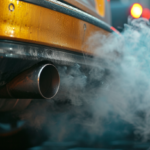Are you experiencing engine misfires? Don’t worry, diagnosing and fixing them is easier than you think. In this article, we’ll guide you through the common causes of engine misfires and provide you with the necessary tools and techniques to pinpoint the issue. With our step-by-step guide, you’ll be able to troubleshoot and fix ignition system problems as well as address fuel system issues that may be causing those frustrating misfires. Get ready to get your engine running smoothly again!
Common Causes of Engine Misfires
One of the most common causes of engine misfires is a faulty spark plug. When your spark plug is damaged or worn out, it can’t produce the spark needed to ignite the air-fuel mixture in the combustion chamber. This leads to a misfire, causing your engine to run unevenly or even stall. To diagnose a faulty spark plug, you can start by checking for signs of wear such as carbon buildup or a worn electrode. If you notice any of these signs, it’s time to replace your spark plug. Luckily, this is a relatively simple and inexpensive fix that you can do yourself. Just make sure to use the correct spark plug for your vehicle’s make and model to ensure optimal performance.
Diagnostic Tools and Techniques for Engine Misfires
To effectively diagnose and fix engine misfires, you need to use the right diagnostic tools and techniques. One of the most common tools used for diagnosing misfires is an OBD-II scanner. This tool connects to the car’s onboard computer system and retrieves error codes that indicate the specific cylinder or component causing the misfire. Additionally, a spark tester can be used to check the ignition system. By connecting the tester to each spark plug wire, you can determine if there is a weak or no spark, which could be the cause of the misfire. Another technique is performing a compression test to check the health of the engine’s cylinders. This test can identify issues such as worn piston rings or valves that may be causing the misfire. By using these diagnostic tools and techniques, you can accurately pinpoint the cause of the engine misfire and proceed with the necessary repairs.
Step-by-Step Guide to Troubleshooting Engine Misfires
Can you identify the potential causes and steps to troubleshoot engine misfires? When you encounter an engine misfire, it’s important to follow a step-by-step guide to pinpoint and fix the issue. The first step is to check for any trouble codes with a diagnostic scanner. These codes can provide valuable information about which cylinder is misfiring and what could be causing it. Next, inspect the spark plugs and ignition coils for any signs of damage or wear. If necessary, replace them. Additionally, check the fuel injectors for clogs or leaks. A fuel pressure test can also help determine if there are any issues with the fuel system. Lastly, consider checking the compression in each cylinder to ensure there are no internal engine problems. By systematically going through these steps, you can troubleshoot and resolve engine misfires effectively.
Fixing Ignition System Issues That Cause Engine Misfires
With the right knowledge and tools, you can easily identify and fix ignition system issues that may be causing engine misfires. The ignition system is responsible for creating the spark that ignites the air and fuel mixture in the engine’s cylinders. If there is a problem with the ignition system, such as a faulty spark plug or ignition coil, it can lead to engine misfires. One common issue is worn or damaged spark plugs, which can cause weak or inconsistent sparks. By inspecting the spark plugs and replacing any that are worn or damaged, you can improve the overall performance of your engine. Another potential issue is a malfunctioning ignition coil, which can cause a weak spark or no spark at all. Replacing the faulty ignition coil can help resolve the misfire problem. Overall, understanding and addressing ignition system issues can go a long way in fixing engine misfires.
Addressing Fuel System Problems to Resolve Engine Misfires
You need to check and fix any fuel system problems in order to resolve engine misfires. The fuel system plays a crucial role in delivering the right amount of fuel to the engine for combustion. If there are issues with the fuel system, such as a clogged fuel filter or a malfunctioning fuel injector, it can result in an imbalance of fuel and air mixture in the combustion chamber, leading to engine misfires. To address fuel system problems, start by inspecting the fuel filter and replacing it if necessary. Additionally, check the fuel injectors for any signs of clogging or malfunctioning and clean or replace them as needed. It is also important to ensure that the fuel pump is functioning properly and delivering an adequate amount of fuel to the engine. By addressing these fuel system problems, you can effectively resolve engine misfires.

Lucas is an experienced vehicle technician with hands-on knowledge of almost every car brand available. Throughout his career, Lucas has worked on a wide range of vehicles, including domestic and foreign models, sports cars, trucks, and SUVs.



